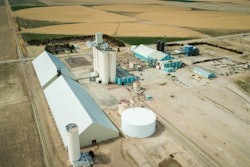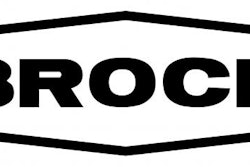
The Surface Transportation Board issued its decision approving the acquisition of Kansas City Southern Railway Company (KCS) by Canadian Pacific Railway Limited (CP), with conditions. The combination of the two railroads, to be known as Canadian Pacific Kansas City (CPKC), will create the first railroad providing single-line service spanning Canada, the United States, and Mexico.
The decision includes an unprecedented seven-year oversight period and contains many conditions designed to mitigate environmental impacts, preserve competition, protect railroad workers, and promote efficient passenger rail. The Board also anticipates the merger will result in improvements in safety and the reduction of carbon emissions.
CP-KCS merger
On October 29, 2021, CP and KCS filed their merger application with STB.
Since that time, STB has received nearly 2,000 comments and other filings and held a seven-day public hearing. STB said it carefully considered the full record, weighed the public benefits against potentially harmful impacts, and imposed appropriate conditions to mitigate those impacts in its approval of the merger. All of the mitigation recommendations from the FEIS have been imposed, with modifications to match STB’s seven-year oversight period, and the Board adds several key additional conditions to protect the public interest. Specific concerns raised in filings are addressed in detail in STB’s decision.
CPKC will continue to be the smallest Class I railroad, with a network that is a few thousand route miles shorter than the next smallest Class I and half the size of the Western railroads. Yet, the transaction is end-to-end, meaning there are little to no track redundancies or overlapping routes between the railroads; they connect only in Kansas City.
Benefits of CP-KCS merger
The transaction will reduce travel time for traffic moving over the single-line service; it should result in increased incentives for investment; and it will eliminate the need for the two now-separate CP and KCS systems to interchange traffic moving from one system to the other.
This will enhance efficiency, which in turn will enable the new CPKC system to better compete for traffic with the other larger Class I carriers. There is substantial (though not unanimous) shipper support for this transaction—the Board has received more than 450 support letters.
Nevertheless, STB recognizes that even end-to-end transactions such as this one may pose some anticompetitive risks. To mitigate those risks, STB is imposing numerous conditions to preserve existing rail service options at affected “gateways”—interchange points between CPKC and other railroads—on commercially reasonable terms, which should ensure competitive options are not reduced for shippers served by CP or KCS. The decision also restricts CPKC from terminating reciprocal switching access for shipper facilities served by CP or KCS that have such access today.
Wheat groups express disappointment
U.S. Wheat Associates (USW) and the National Association of Wheat Growers (NAWG) are disappointed that the Surface Transportation Board (STB) has approved merger.
In public comments submitted to the STB on the proposed merger in February 2022, USW said the market power held by the Class I railroads has serious implications for U.S. wheat’s competitiveness compared to other major exporters. NAWG shared similar public comments with the STB in February 2022, which outlined how reliant wheat is on rail and how decreased rail-to-rail competition hurts shippers and growers alike. Now, this merger takes the U.S. rail system from seven to six Class 1 railroads.
USW and NAWG believe the STB has given a greenlight to rail consolation without regard for the consequences on agricultural shippers from lack of competition in the U.S. rail sector.
“U.S. rail industry consolidation has led to poorer, not improved, service for agricultural shippers,” said USW President Vince Peterson. “In addition, we see extreme disparity in rates for wheat shippers. Rail rates over the last decade have increased exponentially and rates for wheat are higher than rates for other commodities even with similar handling characteristics. Those higher rates make U.S. wheat less competitive in the global market at a time when higher prices already hurt our competitiveness.”
“NAWG is disappointed by today’s STB announcement and maintains our concerns that the merger of CP and KCS will impede competition in the rail market and increase rail rates,” said NAWG CEO, Chandler Goule. “With 50% of wheat being exported, wheat is heavily reliant on rail transportation to move across the United States. Since the merger was announced in 2021, NAWG has filed four public comments with the STB opposing the merger, citing a myriad of concerns on the impact to competition, unfair access to competing wheat producing countries, and changes to tariff provisions that could impact wheat farmers.”
USW and NAWG believe the STB must conduct more rigorous oversight of rail rates and service issues going forward. The STB should also aggressively pursue policies designed to inject competition such as reciprocal switching – a proposal that the STB ironically shelved last year because Class 1 rail service was severely challenged for agricultural shippers.
Learn more


















